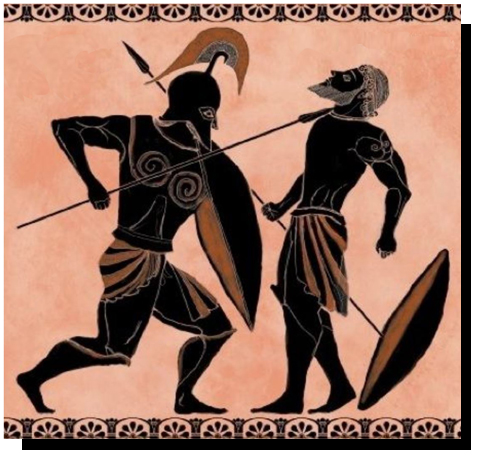The Middle Path Between Extremes Ideal virtue lies in the ‘middle’ or ‘mean’ of the polar extremes. Examples are shown below: Simply doing or mimicking what virtuous people do isn’t enough – you can’t ‘phone it in’. Knowing the right ‘mean’ between the opposites for a specific relationship or situation takes judgment and wisdom. It’s related to tacit knowledge. As Michael Polanyi succinctly informs, “I shall reconsider human knowledge by starting from the fact that we can know more than we can tell”.
"RAGE: Sing, Goddess, Achilles’ rage, black and murderous…” – The Iliad, Book I The first word of the Iliad, menin, means 'rage'. The Greek warrior’s noble fury - prideful passion being the impulse to action - is between the vices of cowardice and blind fury (recklessness). The courageous hero finds the ‘mean virtue’ for honorable action. Setting the secular interpretation of virtue aside, the Gospel of Thomas provides an enlightening and yet a mysterious account of accessing the virtuous within us with, with Jesus saying, "If you bring forth what is within you, what you bring forth will save you. If you do not bring forth what is within you, what you do not bring forth will destroy you.” Jesus is encouraging those who seek by telling them that they already have the internal resources they need to find what they are looking for. We're all here to learn to overcome negativity - not to accept it, embrace it, invite into our homes and cook dinner for it. It is very, very difficult to not think negative in a negative world. If you do not think negative, people will think negative for you! If you want to be positive, they will try to program you to be tired, lonely, old, destitute, whatever it might be. We have no right to be negative. Learn not to put back negativity after receiving it. Program yourself not to get addicted to the pains and hurts.
|

